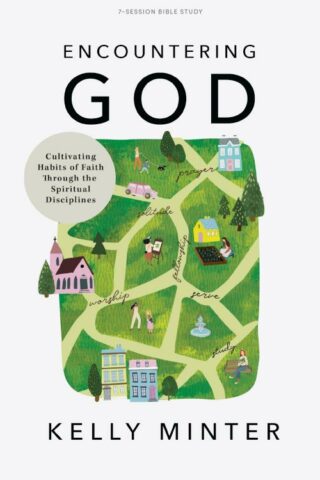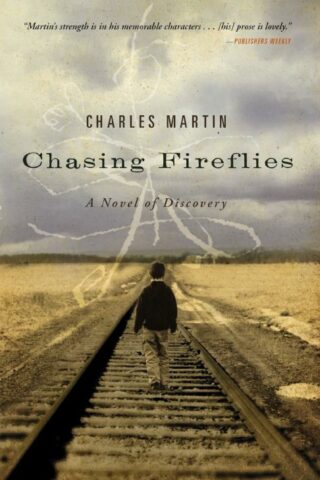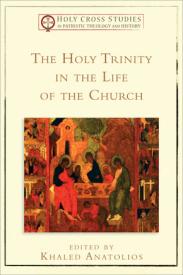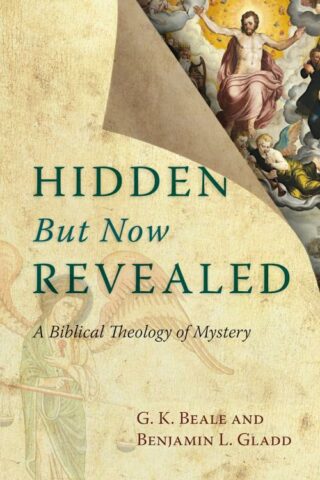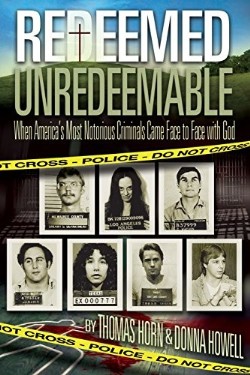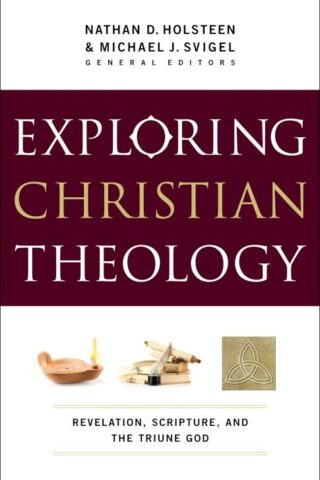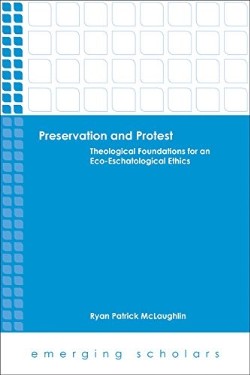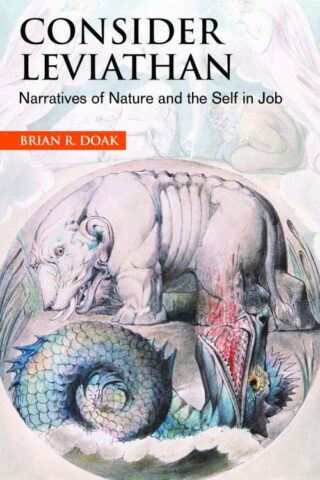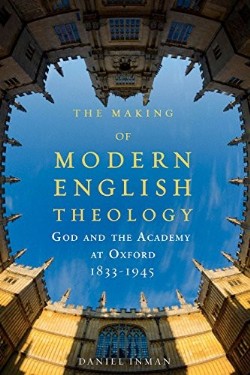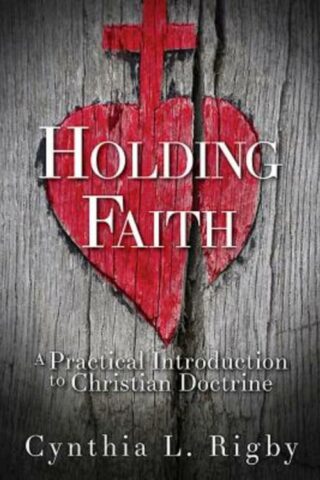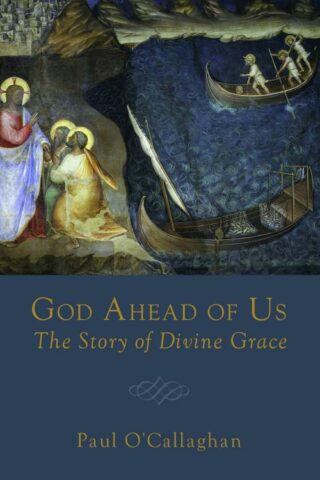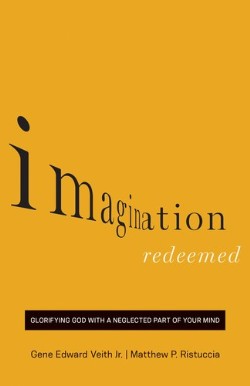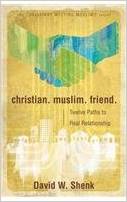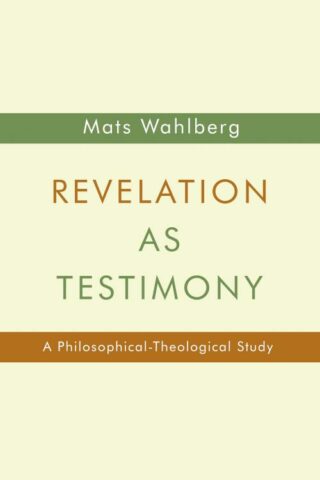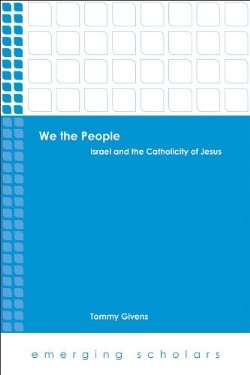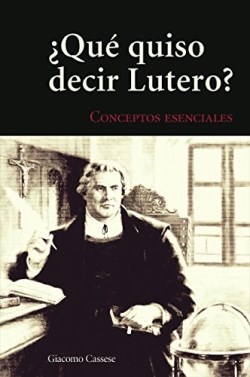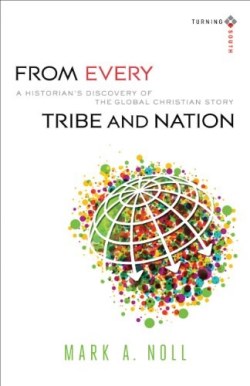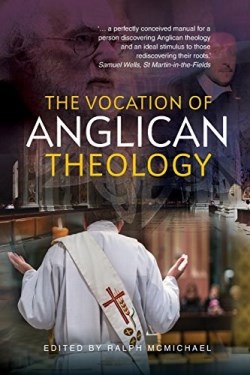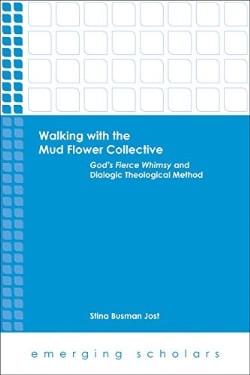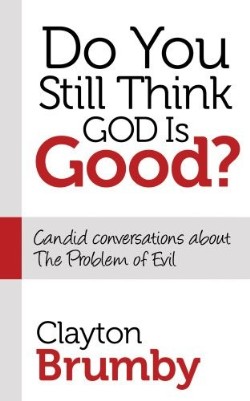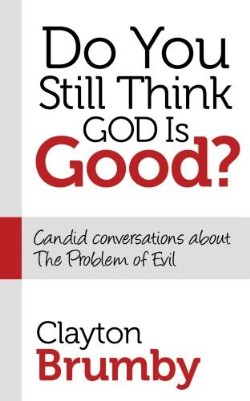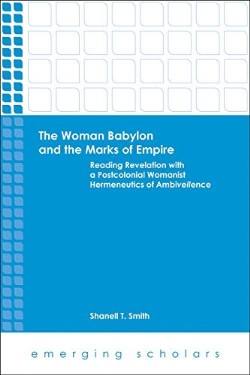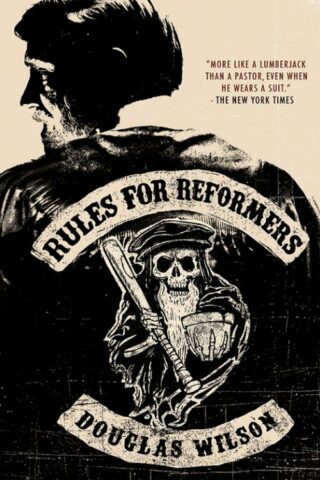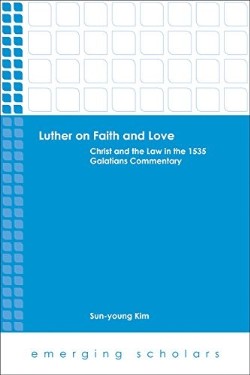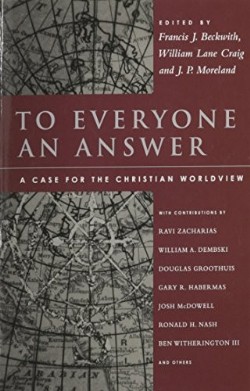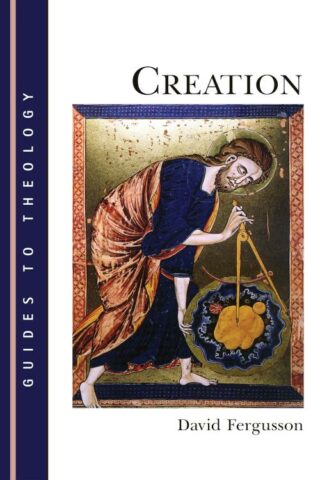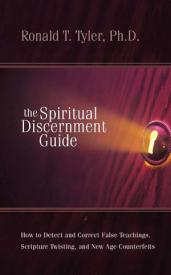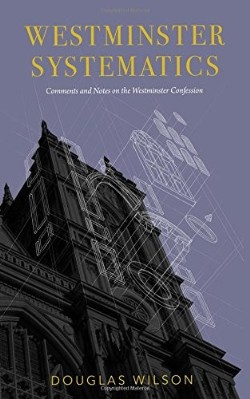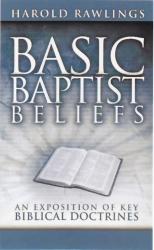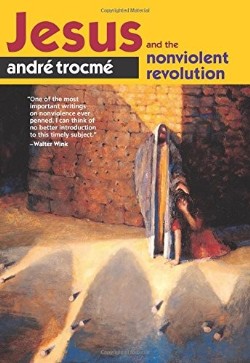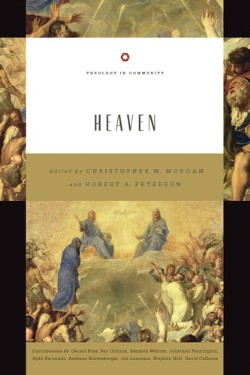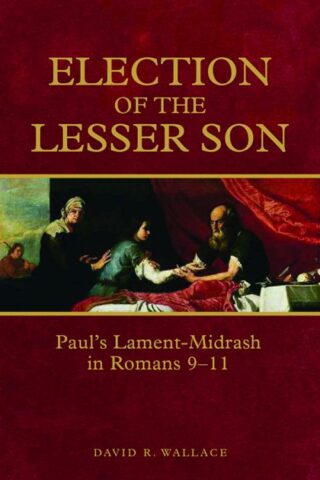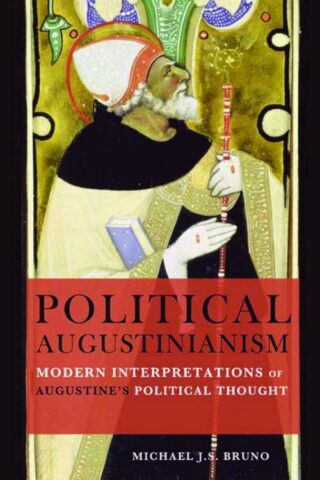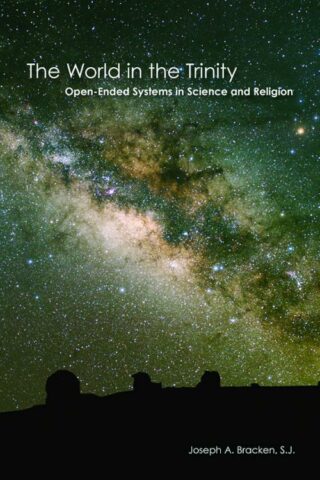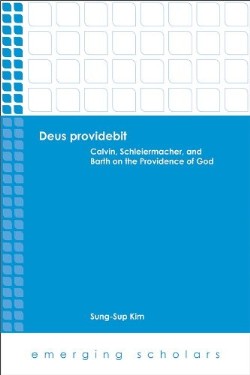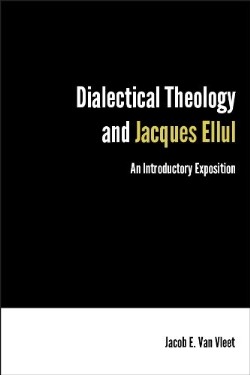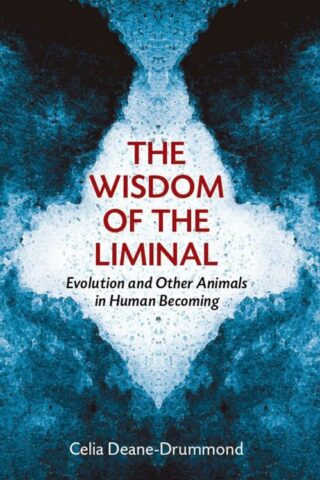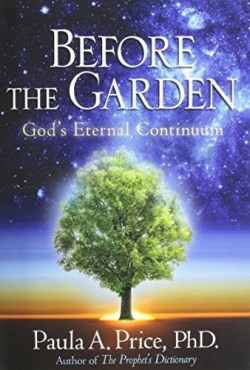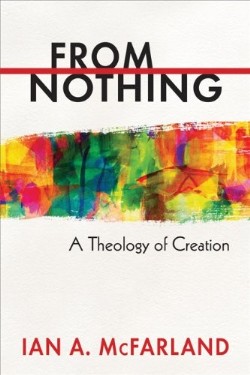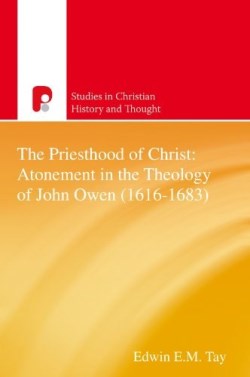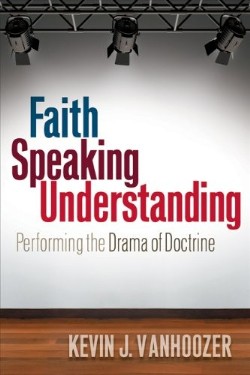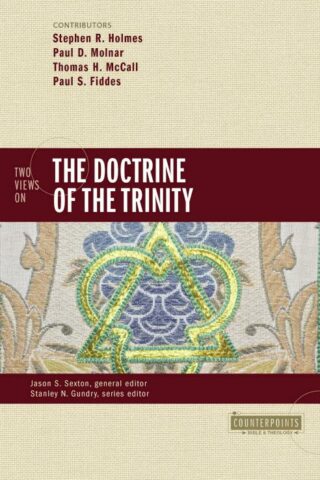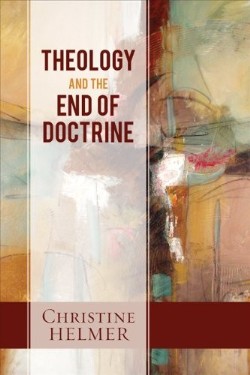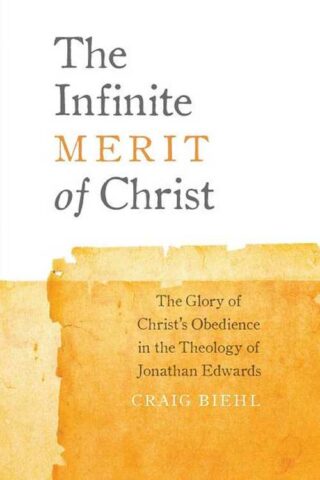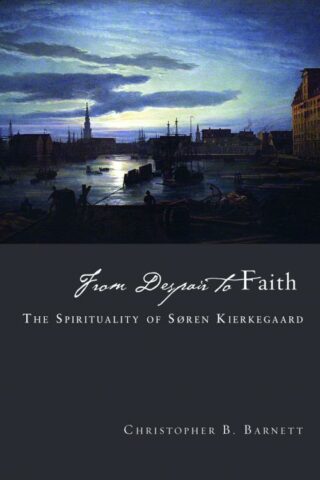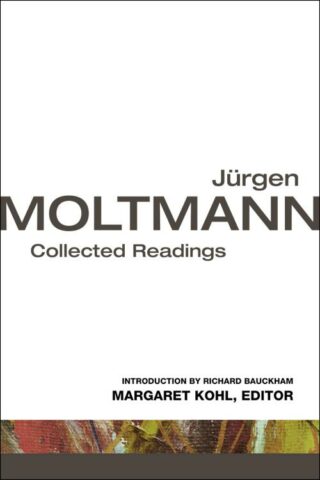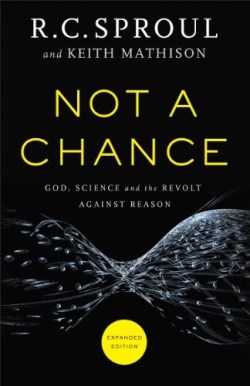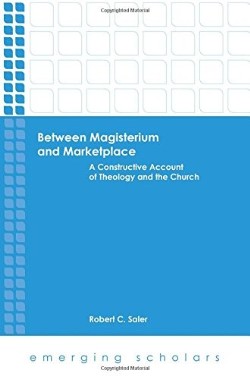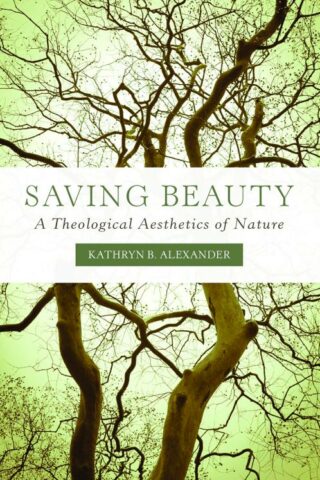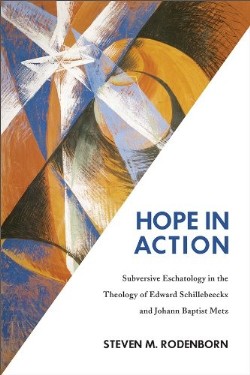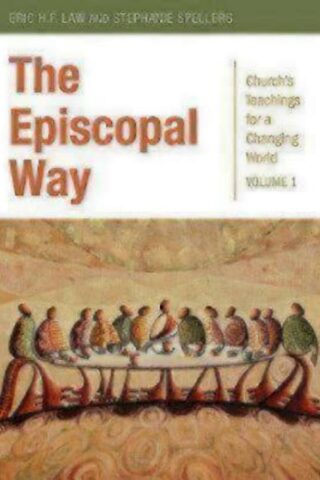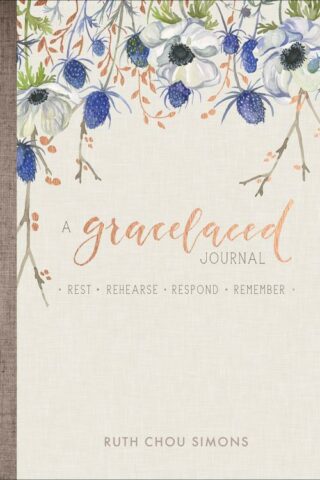Theology (Exegetical Historical Practical etc.)
Showing 1251–1300 of 4078 resultsSorted by latest
-
Holy Trinity In The Life Of The Church
$37.00In this volume, a noted theologian brings together an ecumenical roster of leading scholars to explore trinitarian faith as it is concretely experienced in the life of the church. Drawing upon and fostering renewed interest in trinitarian theology, the contributors–including Brian E. Daley, John Behr, and Kathleen McVey–clarify the centrality of trinitarian doctrine in salvation, worship, and life. This is the third volume in Holy Cross Studies in Patristic Theology and History, a partnership between Baker Academic and the Pappas Patristic Institute of Holy Cross Greek Orthodox School of Theology. The series is a deliberate outreach by the Orthodox community to Protestant and Catholic seminarians, pastors, and theologians.
Add to cartin stock within 3-5 days of online purchase
-
Hidden But Now Revealed
$34.99This book explores the biblical conception of mystery as an initial, partially hidden revelation that is subsequently more fully revealed, shedding light not only on the richness of the concept itself, but also on the broader relationship between the Old and New Testaments. As such, it is a model for attentive and faithful biblical theology.
Add to cartin stock within 3-5 days of online purchase
-
Redeemed Unredeemable : When Americas Most Notorious Criminals Came Face To
$33.25Jesus said that redemption eternal salvation is available to everyone. No one is beyond His reach; no one falls outside the boundaries of His willingness to forgive. Anyone who calls on Him will be saved, He says. But, does that really include names like Jeffrey Dahmer, Ted Bundy, Susan Atkins, Charles Tex Watson, Sean Sellers, David Berkowitz, and Karla Faye Tucker? Redeemed Unredeemable: When America s Most Notorious Criminals Came Face to Face with God features a close look into the lives of infamous members of the Manson Family disciples such as Susan Atkins and Charles Tex Watson, as well as serial killer Ted Bundy, Milwaukee Monster Jeffrey Dahmer, Son of Sam David Berkowitz, Pickaxe Killer Karla Faye Tucker, and parent-killer Sean Sellers. READ FOR THE FIRST TIME IN REDEEMED UNREDEEMABLE… *Exhaustive, fresh research into the court documents and news reports of the most famous criminal investigations and trials *Exclusive interviews with many who were involved in these cases, including relatives of the victims and perpetrators, prison staff members and ministers, and, when possible, even the criminals, themselves *Surprising information about those convicted, including a comprehensive look at their family history, their childhoods, and possible motivations for their horrific deeds *Fresh, big-picture insight into the culture and times that served as the backdrop for these offenders lives *Rare glimpses into these convicted felons private lives after sentencing and incarceration *Compelling exploration of some of the spiritual issues that might have influenced, shaped, and ultimately transformed these men and women While in no way attempting to excuse or justify any of the devastating crimes these men and women have committed, the author s investigation brings to light not just seven case studies of hardened criminals, but seven accounts of loss. Seven stories of searching. Seven chronicles of change. And, ultimately, seven testimonies about redemption. Read for yourself the untold stories of America s most notorious killers, and the unspeakably difficult journeys that brought them to their knees.
Add to cartin stock within 3-5 days of online purchase
-
Exploring Christian Theology Revelation Scripture And The Triune God (Reprinted)
$23.52An Easy-to-Understand Study of Christian Doctrine from Trusted Dallas Seminary Professors
This engaging and accessible systematic theology clearly explains essential spiritual truths for those new to doctrinal study or in need of a refresher. The authors use quick-paced introductions, overviews, reviews of the key tenets of orthodox evangelical doctrines, and more for an easy grasp of the subjects. The book includes two parts:
* How Firm a Foundation: Revelation, Scripture, and Doctrinal Truth
* God in Three Persons: Father, Son, and Holy SpiritThe writers, Douglas Blount and J. Scott Horrell, and the contributors, J. Lanier Burns and Glenn R. Kreider, are all Dallas Seminary professors and theologians led by general editors Nathan D. Holsteen and Michael J. Svigel.
Exploring Christian Theology is useful for discipleship, preview or review of doctrine, or personal reference. It can be used by ministry training programs, Bible colleges, or seminaries as an introduction to prepare students for more in-depth theological study.
Add to cartin stock within 3-5 days of online purchase
-
Preservation And Protest
$81.66Contents:
Preface
Introduction
Part I: A New Taxonomy Of Nonhuman Theological Ethics
1. Current Taxonomies Of Nonhuman Theological Ethics
2. Three Theological Loci For A New Taxonomy
3. A New Taxonomy
4. Anthropocentric Conservation
5. Cosmocentric Conservation
6. Anthropocentric Transfiguration
Part II: Cosmocentric Transfiguration In The Theologies Of Jurgen Moltmann And Andrew Linzey
7. Moltmann On God, Creation, And The Fall
8. Moltmann On Redemption And Mission
9. Moltmann’s Nonhuman Theological Ethics
10. Linzey On Creation, Fall, And Redemption
11. Linzey On Christ, The Spirit, And Anthropology
12. Linzey’s Cosmocentric Transfiguration
13. Moltmann And Linzey: Comparison And Analysis
Part III: Toward An Eco-Eschatological Ethics Of Preservation And Protest
14. Theological Foundations For Cosmocentric Transfiguration
15. Possible Critiques Of Cosmocentric Transfiguration
16. Cosmocentric Transfiguration: An Eco-Eschatological Ethics Of Preservation And Protest
Conclusion: Cosmocentric Transfiguration As The “Best Of Both Worlds”
Notes
Bibliography
IndexAdditional Info
Preservation and Protest proposes a novel taxonomy of four paradigms of nonhuman theological ethics by exploring the intersection of tensions between value terms and teleological terms. McLaughlin systematically develops the paradigm of cosmocentric transfiguration, arguing that the entire cosmos shares in the eschatological hope of a harmonious participation in God’s triune life. With this paradigm, McLaughlin offers an alternative to anthropocentric and conservationist paradigms within the Christian tradition, an alternative that affirms both scientific claims about natural history and the theological hope for eschatological redemption.Add to cartin stock within 3-5 days of online purchase
-
Consider Leviathan : Narratives Of Nature And The Self In Job
$65.00Contents:
Prologue
1. Consider The Ostrich
2. Eco-Anthropologies Of Wisdom In The Hebrew Bible
3. Eco-Anthropologies In The Joban Dialogues
4. Eco-Anthropologies In The Joban God-Speech
5. Natural Theologies Of The Post-Exilic Self In Job
Epilogue: The New Nature And The New SelfAdditional Info
Theologians and philosophers are turning again to questions of the meaning, or non-meaning, of the natural world for human self-understanding. Brian R. Doak observes that the book of Job, more than any other book in the Bible, uses metaphors drawn from the natural world, especially of plants and animals, as raw material for thinking about human suffering. Doak argues that Job should be viewed as an anthropological “ground zero” for the traumatic definition of the post-exilic human self in ancient Israel. Furthermore, the battered shape of the Joban experience should provide a starting point for reconfiguring our thinking about “natural theology” as a category of intellectual history in the ancient world.Doak examines how the development of the human subject is portrayed in the biblical text in either radical continuity or discontinuity with plants and animals. Consider Leviathan explores the text at the intersection of anthropology, theology, and ecology, opening up new possibilities for charting the view of nature in the Hebrew Bible.
Add to cartin stock within 3-5 days of online purchase
-
Making Of Modern English Theology
$56.66Contents:
Introduction: Theology And The Modern University
1. ‘Necessary Knowledge’ Or ‘Inductive Science’? Theology At Oxford, 1833-1860
2. Theology As ‘Breakwater’ Against The Tide Of Unbelief, 1860-1882
3. Nonconformity And The Lux Mundi Faculty, 1882-1914
4. Ecumenical Theology: The Makings Of An English Paradigm, 1914-1945
Epilogue: From ‘Sacra Theologia’ To ‘Theology And Religion’
BibliographyAdditional Info
The Making of Modern English Theology is the first historical account of theology’s modern institutional origins in the United Kingdom. Having avoided the revolutionary upheaval experienced by continental institutions and free from any constitutional separation of church and state, English theologians were granted a relative freedom to develop their discipline in a fashion distinctive from other European and North American institutions.This book explores how Oxford theology, from the beginnings of the Tractarian movement until the end of the Second World War, both influenced and responded to the reform of the university. Neither becoming unbendingly confessional nor reduced to the secular study of religion, the Oxford faculty instead emerged as an important ecumenical body, rooted in the life and practice of the English churches, whilst still being located in the heart of a globally influential research university as a department of the humanities. This is an institutional history of reaction and radicalism, animosity and imagination, and explores the complex and shifting interactions between church, nation, and academy that have defined theological life in England since the early nineteenth century.
Add to cartin stock within 3-5 days of online purchase
-
Holding Faith : A Practical Introduction To Christian Doctrine
$56.99Luther once wrote: “Faith takes hold of Christ and has Him present, enclosing Him as the ring encloses the gem.” The idea that we hold faith because faith holds us, and that faith holds us because faith holds Christ, is vital. We hold faith as we seek to know Christ better, exploring Christian doctrines and deepening our understanding of the impact and relevance to our day-to-day lives. Faith holds us as we respond to Christ’s calling, negotiate life’s challenges, and join in the work of bringing in God’s kingdom. The book conveys the content of core Christian doctrines and then addresses the “so what?” of each, its take away, how it matters to our everyday living, and how it shapes our spiritual and ethical practices. Using theological literature and Scripture but also current events, sociology, fiction, and movies, the author shows that theology matters. It matters to our lives and it matters to the life of the world. How we understand theology and its core beliefs has an impact on who we know ourselves to be and how we relate to God and to one another. Holding Faith concretely shows how various and diverse understandings of particular doctrines play out in relation to the way lives are lived and ethical systems put forward. It holds that some approaches to Christian doctrine are preferable to others, making persuasive arguments for better approaches by drawing from the theological literature and also from the news, sociology, general literature, and movies. Scripture is consistently used and sourced throughout the book as arguments are developed.
Add to cartin stock within 3-5 days of online purchase
-
God Ahead Of Us
$40.00Contents:
Introduction
1. God’s Plan Of Grace And The Predestination Of Humanity In Christ
2. Christian Vocation And The Universal Call To Holiness
3. The Justification Of The Sinner And The Need For Grace
4. The Christian, Child Of God In The Spirit
5. The Transformation Of The Human Creature By Grace
6. The Theological Virtues: Faith, Hope, And Charity
7. Divine Grace And Free Human Response
8. The Fullness And Ultimate Meaning Of Divine Grace: Glory And The Blessed VirginAdditional Info
Pope Francis has stated that his own vocation as a Christian came to him as an awareness that “God is ahead of us,” that God thinks about us and looks after us before we even realize it. This is the essence of grace, a love story that begins with God. The present book is an introduction and exploration of that story-of the Christian life as not about humans looking for God, but God seeking us out.The story that unfolds demonstrates that grace is not something secondary or superficial but primary and constitutive, from crucial beginnings in election and creation to the divine actions of justification and renewal, fostering a life of virtue and obedience. Within this context, the book explores the issues of the relationship of grace and freedom, the dynamics of justification, the true meaning of merit, life as a son or daughter of God, the action of the Holy Spirit, the sacraments and the Church, the role of the ascetical life, and the eschatological horizon of the life of grace. In an accessible account, the author narrates the doctrine of grace as directed towards and explained by the fact that God has destined humans to spend eternity in communion with the Triune creator.
Add to cartin stock within 3-5 days of online purchase
-
Imagination Redeemed : Glorifying God With A Neglected Part Of Your Mind
$22.50Imagination. Contrary to popular perception, it’s not just for kids, artists, or fans of science fiction. Rather, the imagination is what bridges our thinking and feeling, allowing us to do everything from planning a weekend getaway to remembering what we ate for breakfast. In Imagination Redeemed, Gene Veith and Matthew Ristuccia uncover the imagination’s importance for Christians, helping us understand who God is, what his Word teaches, and how we should live in the world today. Drawing on key biblical passages and relevant historical precedents, this important book explores an attribute that is too often ignored in conversations about the Christian life. Here is a call to embrace this forgotten part of the mind as a gift from God designed to bolster faith, hope, and love in his people.
Add to cartin stock within 3-5 days of online purchase
-
Christian Muslim Friend
$14.99Can Christians and Muslims be friends? Real friends?
Even in a post-September 11 era of alienation and religious violence, David Shenk says yes.
In Christian. Muslim. Friend., Shenk lays out twelve ways that Christians can form authentic relationships with Muslims, characterized by respect, hospitality, and candid dialogue.Rooted in his fifty years of friendship with Muslims in Somalia, Kenya, and the United States, Shenk invites Christian readers to be clear about their identity, develop trust, practice hospitality, confront distortions of both faiths, and seek out Muslims committed to peace.
He invites readers to both bear witness to the Christ-centered commitments of their faith while also reaching out in friendship with Muslims. Through astounding stories of his animated conversations with Muslim clerics, visits to countless mosques around globe, and pastors and imams who join hands to work for peace, Shenk offers tested and true paths to real relationships.
A compelling resource with practical application for mission personnel, Sunday school classes, and any Christian who rubs shoulders with people of Islamic faith in their neighborhood or workplace.
Add to cartin stock within 3-5 days of online purchase
-
Revelation As Testimony
$28.99Our knowledge of God, according to the historic Christian tradition, is mainly testimonial: we know certain important truths about God and divine things because God himself has told them to us. In academic theology of late, however, this traditional view is often dismissed. But to do so is a mistake, says Mats Wahlberg, who asserts that the understanding of revelation as divine testimony is both intellectually viable and indispensable to Christian theology.Criticizing the currently common idea that revelation should be construed exclusively in terms of God’s self-manifestation in history or through inner experience, Wahlberg discusses the concept of divine testimony in the context of how any knowledge of God is possible. He draws on resources from contemporary analytic philosophy of testimony – especially John McDowell – to argue for the traditional view of revelation as divine testimony.
Add to cartin stock within 3-5 days of online purchase
-
We The People
$98.33We the People exposits John Howard Yoder’s account of peoplehood and develops an appreciative revision of it that considers carefully and exegetically the politics of Jesus in relation to the people of Israel. This revision assesses Yoder’s and others’ historical accounts of “the parting of the ways” and articulates the theopolitical stakes of such historiography and accounts of Christian origins. The argument considers these stakes specifically in relation to the modern nation-state’s claims to peoplehood and the observable effects of its exegetical and historical moorings in self-assertion as the new and purified Israel. In considering the centrality of election in an account of the constitution of the people of God as a people and the ethical force of such a constitution, the project undertakes a critical engagement with Karl Barth’s account of God’s election. This engagement includes a theologically sensitive and historically responsible exegesis of key Old and New Testament texts in dialogue with the political theology and exegesis of Carl Schmitt, Jakob Taubes, and N. T. Wright. The argument aims finally to offer a constructive theological account of the people of God as constituted in time not by its self but by the God of Israel and as determined materially and ethically by the death and resurrection of Jesus.
Add to cartin stock within 3-5 days of online purchase
-
Que Quiso Decir Lutero – (Spanish)
$16.65Si usted alguna vez ha tenido problemas para explicar algun termino teologico, !no es el unico! Encuentre explicaciones en Que quiso decir Lutero?, un lexico luterano que deberian tener todos los estudiantes de seminarios y universidades. Es especialmente util para aquellos que vienen de tradiciones no luteranas, pero tambien beneficiario a los que crecieron siendo luteranos.
Ademas de ofrecer un temario teologico, Que quiso decir Lutero? es una obra que ofrece aspectos practicos que sin duda iluminaran la experiencia de la vida cristiana. A traves de una lectura sencilla podra tener una comprension de los enfasis que hicieron posible la Reforma del siglo XVI.
If you have ever struggled to explain theological terms, you’re not alone! Find explanations in Que quiso decir Lutero? (What Does Luther Mean?), a must-have Lutheran lexicon for college and seminary student. It’s especially helpful for those who come from traditions other than Lutheranism, but likewise beneficial for those who were raised Lutheran.
In addition to providing a glossary of theological terms, Que quiso decir Lutero? offers practical enlightenment that will transform their experience of the Christian life. Short readings written from a Lutheran perspective provide insight into the emphases that characterized the 16th century Reformation.
Add to cartin stock within 3-5 days of online purchase
-
From Every Tribe And Nation
$32.50Christianity’s demographics, vitality, and influence have tipped markedly toward the global South and East. Addressing this seismic shift, one of America’s leading church historians shows how studying world Christianity changed and enriched his understanding of the nature of the faith as well as of its history.
Mark Noll illustrates the riches awaiting anyone who gains even a preliminary understanding of the diverse histories that make up the Christian story. He shows how coming to view human culture as created by God was an important gift he received from the historical study of world Christian diversity, which then led him to a deeper theological understanding of Christianity itself. He also offers advice to students who sense a call to a learned vocation.
This is the third book in the Turning South series, which offers reflections by eminent Christian scholars who have turned their attention and commitments beyond North America.
Add to cartin stock within 3-5 days of online purchase
-
Vocation Of Anglican Theology
$60.99The Vocation of Anglican Theology seeks to present a contemporary Anglican theology rooted in its sources but reaching into the future. A Range of leading Anglican theologians, including Rowan Williams, Ellen Charry, Kenneth Stevenson, Mark Chapman and Anna Rowlands reflect on key theological subjects such as Christology, ecclesiology and eschatology. Each subject pairs a selection of excerpts from Anglican theologians with an essay. This text is ideal for use in courses on Anglican theology. Indeed, it is hoped that it will prove to be the standard text for courses in Anglican theology throughout the Anglican Communion. In one volume, the student can meet Anglican theologians from the past and in the present, with the opportunity to learn and to inhabit a common Anglican future
Add to cartin stock within 3-5 days of online purchase
-
Walking With The Mud Flower Collective
$81.66Contents:
Introduction: Setting The Stage For An Analysis Of God’s Fierce Whimsy
1. Framing A Methodological Approach To God’s Fierce Whimsy
2. God’s Fierce Whimsy In The Literature
3. Foundational Dialogic Characteristics Of God’s Fierce Whimsy
4. Reflections On God’s Fierce Whimsy In The Words Of The Mud Flower Collective
5. Discerning The Relevance Of God’s Fierce Whimsy
Appendix
BibliographyAdditional Info
Arguing for a retrieval of the landmark work, God’s Fierce Whimsy, Stina Busman Jost establishes the critical importance of this volume for the construction of a dialogic theological method. This is accomplished through a close reading of God’s Fierce Whimsy in which the author identifies key methodological characteristics informing the volume’s formation. Critical importance also is established through interviews with the volume’s authors, the Mud Flower Collective-which included Katie G. Cannon, Beverly W. Harrison, Carter Heyward, Ada Maria Isasi-Diaz, Bess B. Johnson (Delores Williams), Mary D. Pellauer, and Nancy D. Richardson.Undergirding this endeavor is a recognition of the theoretical importance of difference to the project of theological construction and the vital form of the dialogic as constitutive of theological practice; this is carried forward through engagement with the pivotal theorists Martin Buber and Mikhail Bakhtin, who helped pioneer the philosophical and literary critical importance of otherness, difference, and dialogue. Finally, the author constructively engages recent developments in feminist theologies and postcolonial theories-ultimately making the argument that a dialogic theological method is relevant for the doing of theology today.
Add to cartin stock within 3-5 days of online purchase
-
Dogmatic Aesthetics : Theology Of Beauty In Dialogue With Robert W Jenson
$81.66Contents:
Preface
Introduction: Aesthetics And Metaphysics
1: The Simple Beauty Of The Trinity
2: The Cruciform Beauty Of Christ
3: The Contingent Beauty Of Creation
4: The Beauty Of The End
ConclusionAdditional Info
The identification of God with beauty is one of the most aesthetically rich notions within Christian thought. However, this claim is often at risk of becoming untethered from core Christian theological confessions. To avoid a theological account of beauty becoming a mere projection of our wildest desires, it must be reined in by dogmatics. To make this case, this book employs the thought of Robert W. Jenson to construct a dogmatic aesthetics. Jenson’s whole theological program is directed by exploring the systematic potential of the core doctrines of the faith that finally opens out into a vast vision of the beauty of God and creatures: “God is a great fugue . . . the rest is music.” Taking Jenson’s cue, the account of beauty presented in this book is propelled by a core conviction of Jenson’s theology: the sole analogue between God and creatures is not “being” or any other metaphysical concept, but Jesus Christ.Add to cartin stock within 3-5 days of online purchase
-
Do You Still Think God Is Good
$14.99What is evil really?
Where does it come from?
And if God is really God, why doesn’t he do more about it? This world is out of control-so violent, painful, unfair and destructive. Doesn’t God care?The Greek philosopher Epicurus is credited with saying:
Either God wants to abolish evil and cannot; or he can but does not want to; or he cannot and does not want to. If he wants to but cannot, he is impotent. If he can and does not want to, he is wicked. But if God both can and wants to abolish evil, then how comes evil in the world?
This is known as the Epicurean paradox. Obviously, mankind has been wrestling with the problem of evil for some time; Epicurus lived between 340-270 BC.
Fast-forward twenty-three hundred years. Eric Jennings is a freshman at the University of Florida. He and his older sister, Libby, have moved in from the mission field to enter the premed program to become medical missionaries. Eric’s roommate, Todd Rehnquist, though a baseball teammate and a good friend, is an atheist. And he poses the “problem” to Eric using an interesting quote. This sets in motion a conversation between Eric, Todd, Libby, Ray Cohen, the Jennings’ former science teacher, and Mike Murphy, a local youth minister and one of Eric’s spiritual mentors. The conversation happens at an area breakfast haunt, the Gator Skillet. Follow them as they wrestle with this most profound of issues and connect the dots. You’ll find that the answers are as simple as they are surprising.
How does God’s existence make sense in light of the evil and suffering we see all around us? This is a conversation between two and then three evangelical Christian college students, an atheist, a Jew, and a Christian youth minister.
Add to cartin stock within 3-5 days of online purchase
-
Do You Still Think God Is Good
$35.99What is evil really?
Where does it come from?
And if God is really God, why doesn’t he do more about it? This world is out of control-so violent, painful, unfair and destructive. Doesn’t God care?The Greek philosopher Epicurus is credited with saying:
Either God wants to abolish evil and cannot; or he can but does not want to; or he cannot and does not want to. If he wants to but cannot, he is impotent. If he can and does not want to, he is wicked. But if God both can and wants to abolish evil, then how comes evil in the world?
This is known as the Epicurean paradox. Obviously, mankind has been wrestling with the problem of evil for some time; Epicurus lived between 340-270 BC.
Fast-forward twenty-three hundred years. Eric Jennings is a freshman at the University of Florida. He and his older sister, Libby, have moved in from the mission field to enter the premed program to become medical missionaries. Eric’s roommate, Todd Rehnquist, though a baseball teammate and a good friend, is an atheist. And he poses the “problem” to Eric using an interesting quote. This sets in motion a conversation between Eric, Todd, Libby, Ray Cohen, the Jennings’ former science teacher, and Mike Murphy, a local youth minister and one of Eric’s spiritual mentors. The conversation happens at an area breakfast haunt, the Gator Skillet. Follow them as they wrestle with this most profound of issues and connect the dots. You’ll find that the answers are as simple as they are surprising.
How does God’s existence make sense in light of the evil and suffering we see all around us? This is a conversation between two and then three evangelical Christian college students, an atheist, a Jew, and a Christian youth minister.
Add to cartin stock within 3-5 days of online purchase
-
Woman Babylon And The Marks Of Empire
$81.66Contents:
Introduction
1. Critical Convergences: Toward A Postcolonial Womanist Hermeneutics
2. Interpretive Foundations: Furthering Two Scholarly Conversations
3. The Book Of Revelation: Text And Contexts
4. The Woman Babylon And Marks Of Empire: Reading Revelation With A Postcolonial Womanist Hermeneutics Of Ambiveilence
Conclusion
BibliographyAdditional Info
The “Great Whore” of the Book of Revelation-the hostile symbolization used to illustrate the author’s critique of empire-has attracted considerable attention in Revelation scholarship. Feminist scholar Tina Pippin criticizes the use of gendered metaphors- “Babylon” as a tortured woman-which she asserts reflect an inescapably androcentric, even misogynistic, perspective. Alternatively, Elisabeth Schussler Fiorenza understands John’s rhetoric and imagery not simply in gendered terms, but in political terms as well, observing that “Babylon” relies on conventionally coded feminine language for a city.Shanell T. Smith seeks to dismantle the either/or dichotomy within the “Great Whore” debate by bringing the categories of race/ethnicity and class to bear on John’s metaphors. Her socio-cultural context impels her to be sensitive to such categories, and, therefore, leads her to hold the two elements, “woman” and “city,” in tension, rather than privileging one over the other. Using postcolonial womanist interpretation of the woman Babylon, Smith highlights the simultaneous duality of her characterization-her depiction as both a female brothel slave and as an empress or imperial city. Most remarkably, however, Smith’s reading also sheds light on her own ambivalent characterization as both a victim and participant in empire.
Add to cartin stock within 3-5 days of online purchase
-
Rules For Reformers
$23.33Introduction
A Tip Of The Hat To Saul Alinsky
Section 1: Principles First
Section 2: Cases Of Conscience
Section 3: A Theology Of Resistance
Section 4: Three Stumbling Blocks
Section 5: The Littlest Platoon
Section 6: Aphorisms, Tweets, Whatever
Section 7: Five Key Battlegrounds
Section 8: A Final Word Of Encouragement
EpilogueAdditional Info
In Rules for Reformers, Douglas Wilson poaches the political craft of radical progressives and applies it to Christian efforts in the current culture war. The result is a spicy blend of combat manual and cultural manifesto. Rules for Reformers is a little bit proclamation of grace, a little bit Art of War, and a little bit analysis of past embarrassments and current cowardice, all mixed together with a bunch of advanced knife-fighting techniques. As motivating as it is provocative, Rules for Reformers is just plain good to read.Add to cartin stock within 3-5 days of online purchase
-
Luther On Faith And Love
$98.33Contents:
Introduction
1. Research On Faith And Love In Luther
2. Faith And Love In The Dimension Of Passive Righteousness And Holiness
3. Faith: Sole Means Of Grasping Christ
4. Faith And Love In The Dimension Of Active Righteousness And Holiness
5. Love: Means Of Authenticating Faith
Conclusion
Bibliography
IndexesAdditional Info
There has been a distinct tendency in modern scholarship to underestimate Luther’s teaching on love by overemphasizing his teaching on justification. Calling this tendency into question, this volume advances the thesis that Luther’s teaching on faith and love operates as the overriding thematic pair in the dynamics of Christ and the law-structurally and conceptually undergirding the 1535 Galatians commentary. The research situates itself in the landscape of Luther scholarship via a special attention to Finnish Luther scholars and scholarship.The project argues that in the discussion of proper righteousness and holiness, Luther’s redefined love emerges in harmony with faith. His views on Christian freedom, the Christ-given law of love, the twofold way of fulfilling the law, and his Christological premises demonstrate the logical rationale for reintroducing love. This love, designated as a fruit of faith, is incarnated in three major relations: love toward God, toward others, and toward self.
Add to cartin stock within 3-5 days of online purchase
-
To Everyone An Answer
$40.99In a society fascinated by spirituality but committed to religious pluralism, the Christian worldview faces sophisticated and aggressive opposition. A prior commitment to diversity, with its requisite openness and relativistic outlook, has meant for skeptics, critics and even many Christians that whatever Christianity is, it cannot be exclusively true or salvific. What is needed in this syncretistic era is an authoritative, comprehensive Christian response. Point by point, argument by argument, the Christian faith must be effectively presented and defended. To Everyone an Answer: A Case for the Christian Worldview offers such a response. Editors Francis J. Beckwith, William Lane Craig and J. P. Moreland have gathered together in this book essays covering all major aspects of apologetics, including:
faith and reason
arguments for God’s existence
the case for Jesus
the problem of evil
postmodernism
religious pluralism and Christian exclusivismPreeminent in their respective fields, the contributors to this volume offer a solid case for the Christian worldview and a coherent defense of the Christian faith.
Add to cartin stock within 3-5 days of online purchase
-
Creation
$21.99This book explores anew the theme of creation in Scripture, tradition, and contemporary theology. David Fergusson defends the classical account of creation out of nothing but gives more sustained attention than the Christian tradition typically has given to the holistic significance of the created world.Offering both doctrinal exposition and apologetic argument, Fergusson discusses creation in relation to the problem of evil and the fall, divine providence, deism, Darwinian evolution, environmental ethics, animal rights, and other matters. Unusually, the book also touches on the topic of extraterrestrial intelligence. Concise and accessible, Fergusson’s Creation will be particularly useful to students and others seeking a well-informed overview of this important subject.
Add to cartin stock within 3-5 days of online purchase
-
Spiritual Discernment Guide
$26.99An Eye-opening Analysis of False Teachings and Seeds of Apostasy Infiltrating the Body of Christ Plus A Comprehensive Training Guide on the Principles and Application of Spiritual Discernment. Is the spiritual death of much of the Church a present danger? This book provides shocking evidence that it is! Have we entered the end times apostasy (the great falling away from the faith predicted by Jesus)? This book power-fully suggests that we have! Is there a remedy for this deadly condition? This book says there is-the one given in Scripture: heeding God’s warnings and practicing spiritual discernment to unmask Satan’s deceptions!
Add to cartin stock within 3-5 days of online purchase
-
Westminster Systematics : Comments And Notes On The Westminster Confession
$21.25God tells stories a particular way. You see a dragon, and look for St. George.
You see tyranny, and look for…Calvinists.The Westminster Confession of Faith comes from the turbulent period of the English Civil Wars, and its architects lived through events that raised armies, overturned governments, and beheaded a king. In this introduction to systematic theology, Douglas Wilson takes the theologically interested layman through the Confession itself, reading the entire text and succinctly and clearly analyzing topics including the Trinity, the Fall, God’s covenant with man, the sacraments, free will, justification, the civil magistrate, and more.
For those who want to dig deeper, Wilson has assigned extra readings and comprehension questions from three different authors (A.A. Hodge, Thomas Vincent, and Francis Turretin). The perfect medicine for a culture obsessed with word-bending and qualification, Westminster Systematics offers an unapologetic and systematic distillation of the word of God.
Add to cartin stock within 3-5 days of online purchase
-
Basic Baptist Beliefs
$17.63The purpose of this book is to meet a widely felt need for an up-to-date and concise source book on the principal teachings of the Bible from a Biblical perspective. It is not intended for scholars; rather it is to serve as a handy guidebook for laymen as well as beginning theology students, assisting them in grasping some of the foundational beliefs that distinguish Believers in Jesus Christ. Not only can theology be a captivating study, it is essential for Christians to know what they believe. Key Biblical doctrines are addressed that include: Builds a complete and solid biblical foundation for every Christ-follower. Thorough examination of biblical teaching about the existence of God, His revelation to us, Jesus, the Holy Spirit, sin, and redemption. The perfect first book for believers beginning to grapple with the great teachings of Scripture.
Add to cartin stock within 3-5 days of online purchase
-
Jesus And The Nonviolent Revolution
$16.00Andre Trocme of Le Chambon is famous for his role in saving thousands of Jews from the Nazis during World War II. But his bold deeds did not spring from a void. They were rooted in his understanding of Jesus way of nonviolence an understanding that gave him the remarkable insights contained in this long out-of-print classic. In this book, you ll encounter a Jesus you may have never met before a Jesus who not only calls for spiritual transformation, but for practical changes that answer the most perplexing political, economic, and social problems of our time.”
Add to cartin stock within 3-5 days of online purchase
-
Heaven
$25.00Our culture has a lot to say about heaven. But too much of it is based more on imaginative speculation or “supernatural” experiences than on the Bible itself. In the latest addition to the Theology in Community series, Christopher Morgan and Robert Peterson have assembled an interdisciplinary team of evangelical scholars to explore the doctrine of heaven from a variety of angles. Among other contributors, Ray Ortlund examines the concept of heaven in the Old Testament, Gerald Bray explores the history of theological reflection about heaven, and Ajith Fernando looks at persecuted saints’ special relationship to heaven in the New Testament. This team of first rate scholars offers modern readers a comprehensive overview of this often misunderstood topic-shedding biblical light on the eternal hope of all Christians.
Add to cartin stock within 3-5 days of online purchase
-
Election Of The Lesser Son
$56.66Contents:
Introduction
1. Paul’s Grief For Israel, 9:1-5
2. God’s Faithfulness For Israel, 9:6-29
3. Israel’s Failure To Hear, 9:30a??10:21
4. God’s Grace For Israel, 11:1-32
5. Paul’s Praise To God, 11:33-36
6. ResultsAdditional Info
God chooses Israel (salvation “first to the Jew and then the gentile”), but without showing favoritism? Paul genuinely grieves for Israel as one speaking “in” Christ, yet prays to be cursed, cut off from Christ? Romans 9-11 remains one of the most difficult and contested biblical texts in scholarship today. Theological discussions often limit the focus of this passage to God’s sovereignty, emphasizing that God’s mind is not known, or to Paul’s defense of God’s faithfulness, insisting that Israel has failed. Less attention has been devoted to Paul’s unique form and style, which, rightly understood, resolve significant issues, revealing the merciful and wise character of God in his choice of Jacob, the lesser son.David R. Wallace demonstrates how Paul weaves two distinct Jewish literary forms together–lament and midrash-into a logical narrative concerning Israel’s salvation. Attention is given to Paul’s poetical structures, key literary terms, and use of Old Testament contexts. The result is new insight into the meaning of the letter, and into the theology of Paul.
Add to cartin stock within 3-5 days of online purchase
-
Political Augustiniansim : Modern Interpretations Of Augustines Political T
$65.00Contents:
Introduction
1: French Interpretations Of Augustine’s Social And Political Thought
2: From Realism To Justice Ethics: The Early American Reception Of The “Political Augustinian” Discussion
3: Disputing The Saeculum: Robert Markus, John Milbank, And Contemporary Augustinian Interpretations
4: Recovering Augustine’s Vision Of Public Life And Virtue: The Debate Entering The 21st Century
5: Interpreting Augustine’s Political And Social Thought: Hermeneutical Issues And Contemporary Applications
Conclusion
BibliographyAdditional Info
Alongside Saint Thomas Aquinas, the thought of Saint Augustine stands as one of the central fountainheads of not only theology but Western social and political theory. In the twentieth century especially, Augustine has been pivotal to the development of modern and contemporary political and social construction. Schools of ‘Augustinianism’ proliferated, especially in French, German, and English, and debated critical questions around the relationship of the church and state, war, justice, ethics, virtue, and the life of citizenship, interpreted through a lens provided by Augustine.Political Augustinianism examines these modern political readings of Augustine, providing an extensive account of the pivotal French, British, and American strands of interpretation. Fr. Michael J. S. Bruno guides the reader through these modern strands of interpretation, examines their historical, theological, and socio-political context, and discusses the hermeneutical underpinnings of the modern discussion of Augustine’s social and political thought.
Add to cartin stock within 3-5 days of online purchase
-
World In The Trinity
$65.00Introduction
Part I
1. Language And Reality
2. The “Inside” And The “Outside” Of Everything
3. Philosophical/Scientific Models Of The God-World Relationship In The Current Religion And Science Debate
4. Theological Models Of The God-World Relationship In The Current Religion And Science Debate
5. Panentheism: Hierarchically Ordered Systems Of Existence And ActivityPart II
6. “Incarnation” As Key To The Argument For Panentheism
7. Divine And Human Personhood In A Systems-Oriented Approach To The Trinity
8. Tradition And Traditioning: Church As Both System And Institutional Entity?
9. Miracles And The Problem Of Evil
10. Resurrection And Eternal Life
ConclusionAdditional Info
Joseph A. Bracken argues that the failure of theology and science to generate cohesion is the lack of an integrated system of interpretation of the Christian faith that consciously accords with the insights and discoveries of contemporary science.In The World in the Trinity, Bracken utilizes the language and conceptual structures of systems theory as a philosophical and scientific grammar to show traditional Christian beliefs in a new light that is accessible and rationally plausible to a contemporary, scientifically influenced society. This account opens new possibilities for rethinking the God-world relationship, the Trinity, incarnation, creation, and eschatology within the context of a broader ecological and cosmological system. In re-describing these articles constitutive of Christian belief, the author is conscious of the vital importance of retaining the inherent power and meaning of these concepts. This volume freshly retrieves pivotal themes and concepts constitutive of the Christian tradition in a conscious rapprochement with current scientific understandings of nature.
Add to cartin stock within 3-5 days of online purchase
-
Deus Providebit : Calvin Schleiermacher And Barth On The Providence Of God
$81.66Contents:
1. Barth And The Reformed Doctrine Of Providence
2. Calvin’s Doctrine Of Providence
3. Schleiermacher And God The Almighty
4. Barth And God The Father As Lord
Conclusion
BibliographyAdditional Info
This book stages an intervention in Reformed readings of the doctrine of providence, particularly around Barth’s critical interpretation of the tradition stemming from Calvin and Schleiermacher, and provides a critical and constructive assessment of Barth’s contribution. The author argues that while Barth advances the discussion in key ways, his reading of Calvin in particular is significantly hampered by his running challenge to Schleiermacher.Following an assessment of Barth’s critique of the Reformed position, the author provides an extensive reading of Calvin’s writings, demonstrating that Calvin is far more concerned with the Christological basis and Christian meaning of providence than Barth’s theology recognizes; as well, Schleiermacher’s theological construction problematizes aspects of Barth’s reading.
The upshot of this work is that each of these theologians provide critical safeguards and soundings that need to be heard in concert and mutual correction for a robust doctrine of divine providence.
Add to cartin stock within 3-5 days of online purchase
-
Dialectical Theology And Jacques Ellul
$56.66Contents:
Introduction: The Skeleton Key-Dialectical Hermeneutics
1: Primary Influences On Ellul’s Dialectical Worldview
2: Ellul’s Dialectical Worldview
3: Philosophy Of Technology, Part I-Technique, Necessity, And Consequences
4: The Philosophy Of Technology, Part 2- Propaganda And Politics
5: Dialectical Theology, Part 1-God, Salvation, And Freedom
6: Dialectical Theology, Part 2-Hope, Non-Violence, And Christian Anarchism
Conclusion: Jacques Ellul-Dialectician And Prophet
ReferencesAdditional Info
In Dialectical Theology and Jacques Ellul, Jacob E. Van Vleet argues that the work of Jacques Ellul is frequently-and deleteriously-misread on account of inattention to the theological underpinning that governs Ellul’s thought. In a penetrating analysis, the first of its kind, Van Vleet provides a substantive account of the theological structure of Ellul’s work and demonstrates the determinative role that theology, especially dialectical theology, plays in a proper understanding of Ellul.Van Vleet offers a major introduction to Ellul’s thought, his contribution to theology and philosophy, and how his philosophy of technology is both theologically informed and culturally relevant. As well, this work situates Ellul’s theological and philosophical thought within an important genetic context, from Kierkegaard to the dialectical theologians of the twentieth century.
Add to cartin stock within 3-5 days of online purchase
-
Wisdom Of The Liminal
$38.99In this book Celia Deane-Drummond charts a new direction for theological anthropology in light of what is now known about the evolutionary trajectories of humans and other animals. She presents a case for human beings becoming fully themselves through their encounter with God, after the pattern of Christ, but also through their relationship with each other and with other animals.Drawing on classical sources, particularly the work of Thomas Aquinas, Deane-Drummond explores various facets of humans and other animals in terms of reason, freedom, language, and community. In probing and questioning how human distinctiveness has been defined, she engages with a range of scientific disciplines including animal behavior, ethology, and cognitive psychology. The result is a novel, deeply nuanced interpretation of what it means to be distinctively human in the image of God.
Add to cartin stock within 3-5 days of online purchase
-
Before The Garden
$21.99An Apostolic Interconnect Inc. Title
Have you ever wondered where sin comes from; where heaven and hell are and how the light and darkness struggle got started? Do you want to know what happened before this world began, who is in charge of everything and who or what is God? Before the Garden answers these and more, introducing and guiding you through God’s Eternal Continuum. From the author who brought you The Prophets Dictionary and The Prophet’s Handbook.
Add to cartin stock within 3-5 days of online purchase
-
From Nothing : A Theology Of Creation
$42.00Too often the doctrine of creation has been made to serve limited or pointless ends, like the well-worn arguments between science and faith over the question of human and cosmic origins. Given this history, some might be tempted to ignore the theology of creation, thinking it has nothing new or substantive to say. They would be wrong.
In this stimulating volume, Ian A. McFarland shows that at the heart of the doctrine of creation lies an essential truth about humanity: we are completely dependent on God. Apart from this realization, little else about us makes sense.
McFarland demonstrates that this radical dependence is a consequence of the doctrine of creatio ex nihilo, creation from nothing. Taking up the theological consequences of creation-theodicy and Providence-the author provides a detailed and innovative constructive theology of creation. Drawing on the biblical text, classical sources, and contemporary thought, From Nothing proves that a robust theology of creation is a necessary correlate to the Christian confession of redemption in Jesus Christ.
Add to cartin stock within 3-5 days of online purchase
-
Priesthood Of Christ
$49.99Despite wide acclaim for John Owen (1616-1683) as the leading representative of the Reformed doctrine of particular atonement, a thorough examination of Owen’s views on the atonement has yet to be undertaken. This work is the first full-scale monograph on Owen’s atonement theology and therefore fills the apparent lacuna. Drawing on recent historiographical studies on the intellectual history of Protestant Orthodoxy and the full range of Owen’s writings, the author demonstrates that at the heart of Owen’s atonement theology is his peculiar understanding of Christ’s priesthood conceived in terms of the oblation and intercession of Christ, performed in the states of humiliation and exaltation.
Add to cartin stock within 3-5 days of online purchase
-
Faith Speaking Understanding
$42.00In this volume, highly esteemed scholar Kevin Vanhoozer introduces readers to a way of thinking about Christian theology that takes the work he began in the groundbreaking 2005 book, The Drama of Doctrine, to its next level. Vanhoozer argues that theology is not merely a set of cognitive beliefs, but is also something we do that involves speech and action alike. He uses a theatrical model to explain the ways in which doctrine shapes Christian understanding and forms disciples. The church, Vanhoozer posits, is the preeminent theater where the gospel is “performed,” with doctrine directing this performance. Doctrines are not simply truths to be stored, shelved, and stacked, but indications and directions to be followed, practiced, and enacted. In “performing” doctrine, Christians are shaped into active disciples of Jesus Christ. He goes on to examine the state of the church in today’s world and explores how disciples can do or perform doctrine. Written in an accessible and engaging style, Faith Speaking Understanding sets forth a compelling vision of what the church is and what it should be doing, and demonstrates the importance of Christian doctrine for this mission.
Add to cartin stock within 3-5 days of online purchase
-
2 Views On The Doctrine Of The Trinity
$24.98The doctrine of the Trinity stands front and center of the Christian faith and its articulation. After a sustained drought of trinitarian engagement, the doctrine of the Trinity has increasingly resurged to the forefront of Evangelical confession. The second half of the twentieth century, however, saw a different kind of trinitarian theology developing, giving way to what has commonly been referred to as the ‘social Trinity.’ Social—or better, relational—trinitarianism has garnered a steady reaction from those holding to a classical doctrine of the Trinity, prompting a more careful and thorough re-reading of sources and bringing about not only a much more coherent view of early trinitarian development but also a strong critique of relational trinitarian offerings. Yet confusion remains. As Evangelicals get better at articulating the doctrine of the Trinity, and as the current and next generation of believers in various Christian traditions seek to be more trinitarian, the way forward for trinitarian theology has to choose between the relational and classical model, both being legitimate options. In this volume, leading contributors—one evangelical and one mainline/catholic representing each view—establish their models and approaches to the doctrine of the Trinity, each highlighting the strengths of his view in order to argue how it best reflects the orthodox perspective. In order to facilitate a genuine debate and to make sure that the key issues are teased out, each contributor addresses the same questions regarding their trinitarian methodology, doctrine, and its implications. Contributors include: Stephen R. Holmes; Paul D. Molnar; Thomas H. McCall; and Paul S. Fiddes.
Add to cartin stock within 3-5 days of online purchase
-
Theology And The End Of Doctrine
$39.00This book is about the crisis brought about by doctrine’s estrangement from reality–that is from actual lives, experiences, histories, and from God. By invoking “the end of doctrine,” Christine Helmer opens a new discussion of doctrinal production that is engaged with the challenges and possibilities of modernity. The end of doctrine refers on the one hand to unquestioning doctrinal reception, which Helmer critiques, and on the other, represents an invitation to a new way of understanding the aim of doctrine in deeper connection to the reality that it seeks.
The book’s first section offers an analysis of the current situation in theology by reconstructing a trajectory of Protestant theology from the turn of the twentieth century to today. This history focuses primarily on the status of the word in theology and explains how changes in theology in the context of the political and social crisis in Europe in the 1920s and 1930s led to a distancing of the word from reality. Helmer then turns to the constructive section of the book to propose a repositioning of theology to the world and to God. Helmer’s powerful work will inspire revitalized interest in both doctrine and theological inquiry itself.
Add to cartin stock within 3-5 days of online purchase
-
Infinite Merit Of Christ
$24.95God is infinitely excellent, and that excellence is most profoundly displayed in the person and saving work of Jesus Christ. The heart of Edwards’ theology radiates the glory of God as displayed in Christ’s saving of unworthy sinners through perfect obedience to God’s unchanging rule of righteousness. The whole of Edwards’ theology stands on the beauty and redemptive work of Christ as revealing and communicating the marvelous perfections of the Trinity. Salvation of a single soul apart from perfect conformity to God’s rule of righteousness would render God unrighteous and abolish His ultimate purpose to display and communicate His glory. Indeed, God could not be God. Revisionist interpretations of Edwards’ soteriology as inclusive or Catholic, therefore, are untenable without an overthrow and rewrite of the entirety of Edwards’ theology. Chapter One examines the ultimate Trinitarian purpose to display and communicate His glory through the Father’s gift of a bride for His Son, and the Son’s purchase of His bride by His perfect obedience to God’s rule of righteousness. Indeed, all of creation serves as the stage of God’s purpose and plan in Christ, leading to the ultimate goal of the saints’ happiness in heaven as they enjoy the infinite blessings of Christ’s exaltation and glory. Chapter Two probes the pre-temporal Trinitarian and covenantal foundation of Christ’s obedience, highlighting the Father’s love in His purpose to save a people, and the Son’s love in freely undertaking to accomplish it. Initiated by the Father, and mutually accepted by Christ and the Father, the terms of the Covenant of Redemption provide for the purchase of Christ’s bride without injury to God’s perfections, most notably His righteous justice. And as Christ voluntarily accepted the terms of the covenant, the entirety of Christ’s saving work earned infinite merit for those He represented and purchased. Chapter Three examines the command to Adam as representative of God’s unchanging rule of righteousness that requires perfect obedience for the obtaining of eternal life. All of God’s commands are comprehended in this one great and unchanging rule of righteousness, as it reflects the very character of God. Chapter Four probes the absolute need for Christ’s perfect obedience in light of Adam’s sin as the representative of mankind, the immutability of God’s righteousness and law despite Adam’s sin, the infinite guilt of sin and the need of an infinite remedy, God’s requirement of a per
Add to cartin stock within 3-5 days of online purchase
-
From Despair To Faith
$48.75Contents:
Preface
1. Kierkegaard As Spiritual Writer
2. Kierkegaard On God, Self, And The Spiritual Journey
3. Kierkegaard And The Aesthetics Of The Icon
4. Icons Of Faith: The Natural World
5. Icons Of Faith: The Bible
Bibliography
IndexAdditional Info
Sren Kierkegaard has been called many things, from brooding genius and “melancholy Dane” to the father of existentialism. Yet, rather than clarify the nature of Kierkegaard’s writings, such labels have often obscured other important aspects of his authorship. Such, indeed, is the case with Kierkegaard’s standing as a spiritual author.In From Despair to Faith: The Spirituality of Sren Kierkegaard, Christopher B. Barnett endeavors to remedy this problem. He does so in two overarching ways. First, he orients the reader to Kierkegaard’s grounding in the Christian spiritual tradition, as well as to the Dane’s own authorial stress on themes such as upbuilding, spiritual journey, and faith. Second, Barnett maintains that Kierkegaard’s spirituality is best understood through the various “pictures” that populate his authorship. These pictures are deemed “icons of faith,” since Kierkegaard consistently recommends that the reader contemplate them. In this way, they both represent and communicate what Kierkegaard sees as the fulfillment of Christian existence.
In the end, then, From Despair to Faith not only offers a new way of approaching Kierkegaard’s writings, but also shows how they might serve to illuminate and to deepen one’s relationship with the divine.
Add to cartin stock within 3-5 days of online purchase
-
Jurgen Moltmann Collected Readings
$56.66Jurgen Moltmann’s life and work have marked the history of theology after the Second World War in Europe and North America like no other. He is the most widely read, quoted, and translated theologian of our time. His systematic work thrives on the cutting edge of Christian theology in the twenty-first century, challenging and stimulating a whole generation of theologians to work at theology in different and more comprehensive ways.
Add to cartin stock within 3-5 days of online purchase
-
Not A Chance (Revised)
$22.35Despite claiming unbelief in God or any higher power that may have designed or created the world and all that is in it, modern scientists often write and speak of chance as some kind of being or force that can actually cause things to happen. In one breath they push the evolution agenda and in the next they say that creatures were “designed” with specific traits. In this classic book, R. C. Sproul and Keith Mathison call the scientific world to employ logic and clarity in their discourse, to leave the word chance as an abstract concept to describe mathematical possibilities rather than an ontological being that can actually cause change. This expanded edition includes a new chapter dealing with the most recent attempts to defend irrational scientific statements. Two new appendices answer critics and review other literature on scientific discoveries that support belief in a Creator God.
Add to cartin stock within 3-5 days of online purchase
-
Between Magisterium And Marketplace
$81.66Contents:
Introduction
1. Situating Authorship: Insights From Contemporary Literary Theory
2. The Rock Or The Eagle?
3. Magisterium Or Marketplace?
4. Authorship In Public
5. The Church As Diffusively Spatialized Event
Conclusion
BibliographyAdditional Info
What is the relationship of the church to theology? How does the church relate to the work of creative theological authorship, particularly when authors propose novel claims? Even more, how do ecclesial models, particularly of ecclesial authority, underwrite or authorize how theology is done? Saler takes up these challenging and provocative questions and argues for a fresh ecclesiology of the church as event, specifically as a diffusively spatialized event.Establishing this claim through the fascinating historical encounters between thinkers like Thomas More and William Tyndale, John Henry Newman and Friedrich Schleiermacher, Between Magisterium and Marketplace provides a theological genealogy of modern ecclesiology, arguing that modern and contemporary ecclesiology is a theological contest not between Barth and Schleiermacher, but rather Newman and Schleiermacher. Constructing an alternative path, Saler turns to the work of a diverse array of authors past and present to argue for a humble yet hopeful view of the theological task in light of contemporary ecclesial opportunities.
Add to cartin stock within 3-5 days of online purchase
-
Saving Beauty : A Theological Aesthetics Of Nature
$65.00Contents:
Introduction
1: Natural Beauty: A Theological History
2: Nature-Beauty And Salvation
3: Nature Revealed: Religious Insight In The Art Of Andy Goldsworthy
4: A Theological Aesthetics Of Nature
Conclusion: Saving Beauty
BibliographyAdditional Info
Kathryn B. Alexander argues that natural beauty is a source of religious insight into the need and way of salvation, and this project develops a theological aesthetics of nature and beauty with an aim toward cultivating a theological and ethical framework for redeemed life as participation in ecological community.With interdisciplinary verve, engaging systematic, philosophical, and art theory systems of aesthetics, the volume fosters the cultivation of the sense of beauty through creative, religious, and sacramental experience. All three types, in fact, are critically necessary, as the author argues, in eliciting hope for ecological redemption. This volume makes a vital contribution to the systematic and philosophical framework for ecological theology, aesthetics, and theological ethics.
Add to cartin stock within 3-5 days of online purchase
-
Hope In Action
$65.00Introduction: “Always Be Ready…”
1. Metz’s Response To Secularization: From A Transcendental-Linear To A Utopic Theology Of History
2. Schillebeeckx’s Response To Secularization: From A Merciful Dispensation To Latent Eschatological Hope
3. Schillebeeckx Contends With A History Marked By Suffering: Contrast Experiences And A Search For Eschatological Hope’s Positive Orientation
4. Schillebeeckx’s Prophetic Eschatology: Contrast Experiences And Creative Fragments
5. Metz Contends With A History Marked By Suffering: Sensitivity To Suffering Under The Pressures Of Evolutionary Time
6. Metz’s Apocalyptic Theology Of History: Holding Open Hope By Binding HistoryConclusion: “An Accounting For The Hope…”
Postscript: Subversive Eschatology And “Indirect Ecumenism”
BibliographyAdditional Info
This volume contends against a major lacuna in the story of eschatology in the twentieth century by offering a historical and comparative analysis of Edward Schillebeeckx’s prophetic eschatology and Johann Baptist Metz’s apocalyptic eschatology with the goal of identifying relative advantages and limitations of these divergent eschatological frameworks for rendering a Christian account of hope that prompts action in the public arena.Rodenborn provides a fresh angle on eschatologies of hope, bringing to the fore two Catholic theologians whose influences range from Vatican II to Latin American liberation theology. Hope in Action offers an innovative contribution to the theological account of the emergence of European political theologies and the role of eschatology as a practical and destabilizing theological category.
Add to cartin stock within 3-5 days of online purchase
-
Episcopal Way
$16.95Updated content and approach, compared to earlier New Church’s Teachings
series, with emphasis on mission and applicability* Interactivity is emphasized throughout with robust study guides, links to a host of
web and video resources, and jargon-free languageThe New Church’s Teachings was one of the most recognizable and useful book
series in the Episcopal Church. The books were a mainstay on seminarian and clergy
bookshelves. With this launch of the Church’s Teachings for a Changing World series,
two visionary Episcopal thinkers and church leaders team up to revitalize the currency,
integrity, and scholarship of the original series with fresh new voices and style; concise
and clear enough for newcomers, yet grounded and thoughtful enough for seminarians
and leaders.In this foundational text for the Church’s Teachings for a Changing World, Law and
Spellers explore seismic shifts in American life and the opportunities and challenges
each presents to the church today. With a winning combination of passion, creativity,
and wisdom, the authors call for a return to Episcopal basics and insist that faithfully
engaging a changing world might be the most truly Anglican practice of all.For Episcopal newcomers, members, church leaders, clergy, and seminarians.
Add to cartin stock within 3-5 days of online purchase



